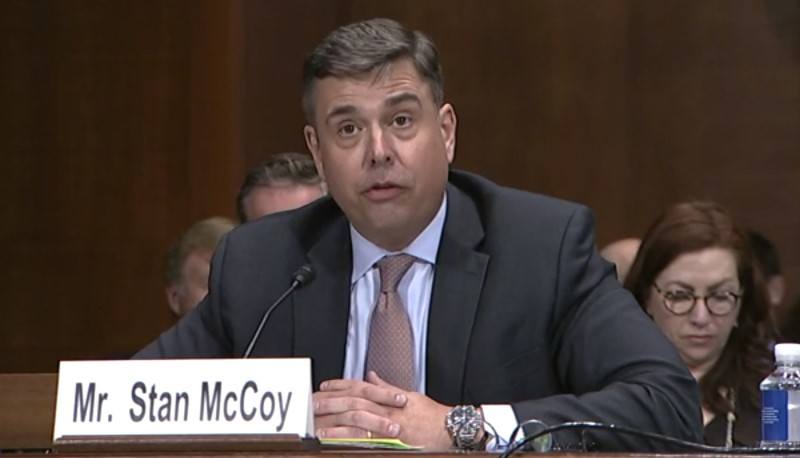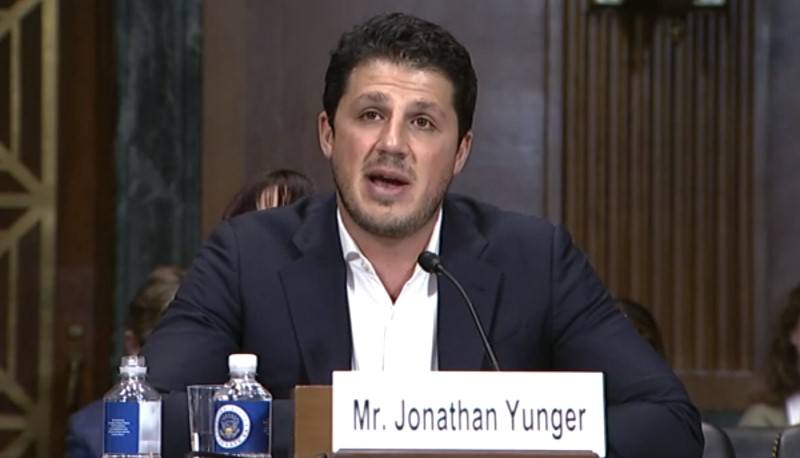Late last year, U.S. Senator Thom Tillis launched a new initiative in the Senate Judiciary Subcommittee on Intellectual Property to find ways the US can better address online piracy.
The DMCA is more than two decades old now and, increasingly, the creative industries are calling for legislative change and bolstered enforcement.
To review the available options and possible hurdles, Tillis chaired a hearing of the Senate Subcommittee yesterday, to examine the approaches taken in foreign jurisdictions.
In two panels, academics plus stakeholders from the entertainment and tech industries shared their thoughts, complemented by written testimonies. While a wide variety of issues were raised, much of the discussion revolved around site blocking.
At the moment, known pirate sites are blocked by Internet providers in dozens of countries around the world. But in the US, which is the largest audience for these sites, pirate site blocking is notably absent. This presents room for improvement.
Stan McCoy, President and Managing Director of the Motion Picture Association’s EMEA region, informed the Senate Subcommittee that foreign site blocking efforts are the “most successful approach to online piracy” to date.
“This remedy allows a rights holder to seek a legal order, subject to due process, from an online intermediary that is capable of preventing its service from being used for unlawful purposes,” he mentions.
A ‘no-fault’ injunction puts no blame on intermediaries such as ISPs. However, it does order them to take action against infringing sites and services, which can include blocking.
“Many countries currently offer such a no-fault injunctive remedy to address infringing conduct by pirate sites, including Australia, most member states of the European Union, India and the United Kingdom, to name a just a few,” McCoy notes, while adding that Canada recently joined in as well.
These blocking efforts, many of which the MPA is directly involved in, have proven to be effective according to the movie industry group.
“Our internal data shows us that site blocking is very effective at cutting traffic to pirate domains – meaning that an order applicable to the main access providers in a given country reduces traffic to a targeted domain by 70% on average and can be as high as 80-90% in some countries,” McCoy notes.

In addition to decreasing traffic to blocked domains, which is an obvious result, McCoy also mentions that traffic to other pirate sites also decreased, while legal websites enjoyed more visitors at the same time.
“So yes, site blocking is effective. And that is why much of the rest of the world has embraced this approach,” McCoy concludes.
The effectiveness claims were backed up in other testimonies as well, including that of Dr. Michael D. Smith of Carnegie Mellon University, who published and reviewed several papers on the effectiveness of anti-piracy enforcement.
While the MPA didn’t explicitly call for new legislation, it’s obvious that the movie industry sees blocking as a viable option in the US as well. This was reiterated in testimony from Jonathan Yunger, the co-president of Millennium Media, which is one of the largest independent film production companies.
Millennium Media is the driving force behind several lawsuits against BitTorrent users, websites such as YTS, and apps including Showbox, Popcorn Time, and Cotomovies. According to Yunger, these and other forms of piracy represent an existential threat to the movie business which the DMCA hasn’t been able to curb.
“The truth is that the battle against piracy has only intensified since the DMCA became law, with too little progress to show for it,” Yunger notes.
“Anything that could be distributed digitally online was stolen and monetized by criminals, facilitated by some of the world’s wealthiest internet companies including Google, its now-sibling YouTube, and Facebook.”
Yunger sees large tech companies as clear rivals, which have only made matters worse. For example, when Millennium did a search on YouTube two years ago it found over 200 pirated versions of its films which had been viewed over 110 million times in just one month.
While blocking YouTube isn’t very realistic, Millennium’s co-president does see site blocking as the prime answer to piracy.
“I would like to be able to tell you that America is on the front lines of this global fight against piracy, but, unfortunately, that is not true. Other countries around the world have taken the lead,” he says.
“The first and most important tool being used abroad is no-fault injunctive relief aimed at blocking access to the market by known, adjudicated pirate sites, referred to by some as ‘site blocking,’ Yunger adds.
Like many others, Yunger knows that site blocking is a sensitive topic in US Congress, specifically after the SOPA legislation failed to pass in 2012. At the time, opponents warned that site blocking would ‘break the internet’ and ‘stifle free speech,’ but that was all “fearmongering” and “hyperbole” according to Yunger.
“Back then, we all thought Silicon Valley was simply trying to make the world a better place. The tech industry and its allies tried to portray the creative community as a rich and greedy behemoth that was trying to take away people’s free content and destroy their access to a safe and well-functioning internet,” he says.
“Well, I think we all know who the rich and greedy industry behemoth is today, and there are plenty of questions about who can properly wave the guardian banner on behalf of internet users. In this David and Goliath scenario, the creative industry is obviously the David to the Big Tech Goliath.”

Millennium sees site blocking as an effective anti-piracy tool and the company wants the US to join other countries. A clear message, but the company’s co-president does derail at the end, by mentioning two long-defunct pirate sites.
“Since the first website blocking order went into place in May 2010, notorious piracy site ThePirateBay has been blocked in 19 countries. Isohunt is now blocked in 10 countries and KickAssTorrents is blocked in 11 countries. But, sadly, all of those sites are still available to Americans.”
Apparently, Yunger believes that torrent sites isoHunt and KickassTorrents remain threats. However, isoHunt shut down years ago after it lost a lawsuit against the MPA, and KickassTorrents was shut down by the feds in 2016.
The overall message is obvious, however. The movie industry sees site blocking as a great tool to combat piracy and the suggestion is that US lawmakers should do something with it.
That brings us to a crucial matter. The DMCA already includes a provision to provide injunctive relief against intermediaries, which could order ISPs to block foreign pirate sites.
This matter was also brought up at the hearing by Matt Schruers, President at the Computer & Communications Industry Association. Schreurs, who represents the interests of many major tech companies, stresses that there are also potential negative consequences to site blocking.
He references several mistakes that were made when US authorities first started seizing domains of allegedly infringing websites, including the fact that 84,000 websites were taken down in error.
In addition, Schreurs also highlights that the DMCA does allow for injunctive relief under subsection 512(j).
“It is interesting to hear talk of other jurisdictions having pioneered site blocking when members of this committee gave the earliest thought to injunctive relief in this context, and it’s embodied in 512(J),” he says. “The notion that there isn’t an injunction remedy in US law is really not accurate.”
Stan McCoy of the MPA acknowledges this “hypothetical” option but points to the crux of why we haven’t seen any site-blocking efforts yet.
“The great benefit we see in a lot of the jurisdictions that have no-fault injunctive relief around the world is that it’s very clearly no-fault. We’re not asserting any kind of wrongdoing on the part of the intermediary against whom the order is sought.”
“Unfortunately, that aspect is not ideally clear in 512(j) and that’s perhaps one reason why that provision has not been used,” McCoy adds.
Yesterday’s Senate Judiciary Subcommittee is part of an ongoing process to review the state of US copyright law and to see what other options are available. In addition to site blocking, the EU Copyright Directive, including Article 17, was also discussed.
While it is clear that site blocking is on the agenda of US lawmakers, any concrete changes to the DMCA or other legislation are not on the table yet.
Drom: TF, for the latest news on copyright battles, torrent sites and more. We also have an annual VPN review.
Source : Movie Industry Praises the Effectiveness of Pirate Site Blocking in U.S. Senate










